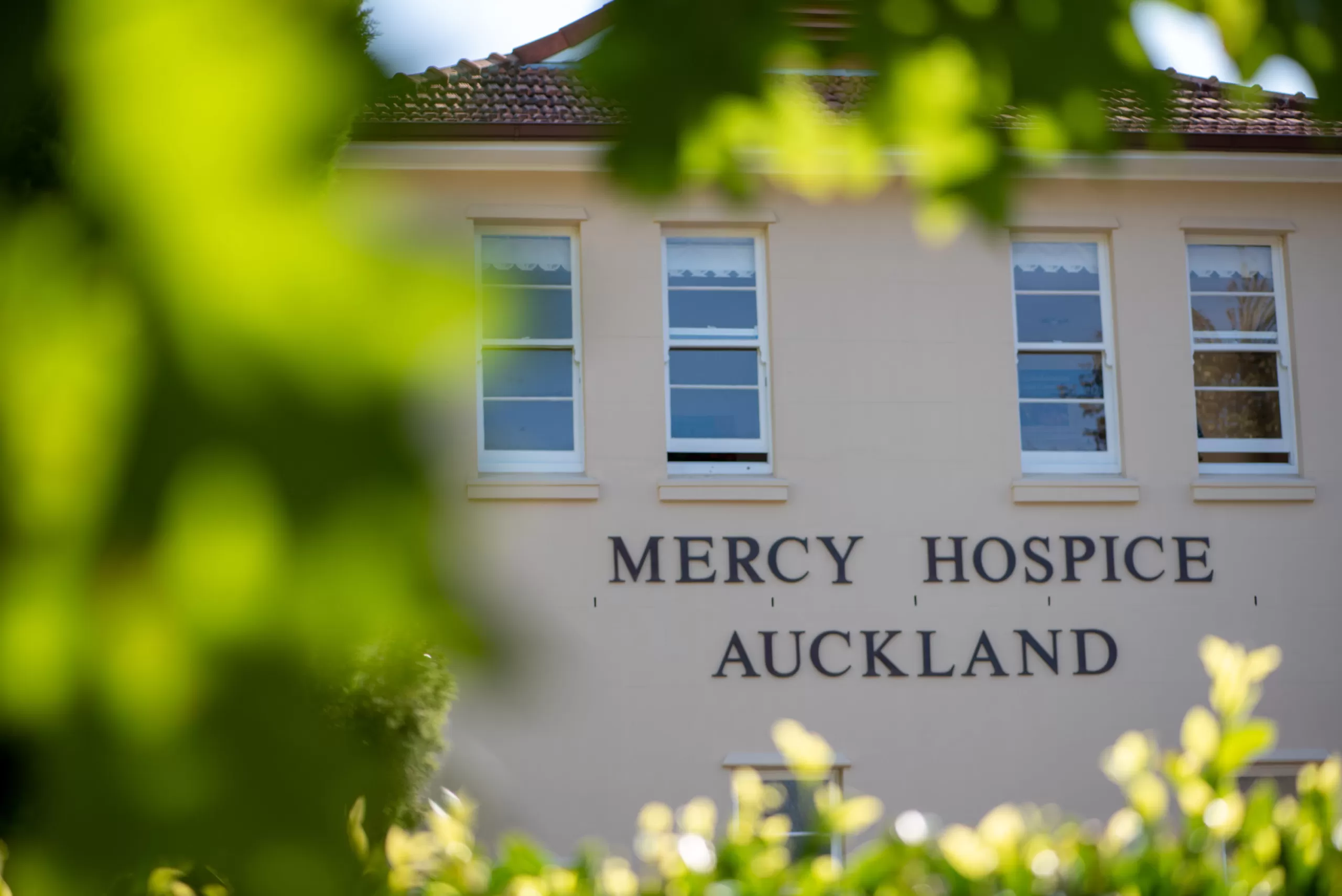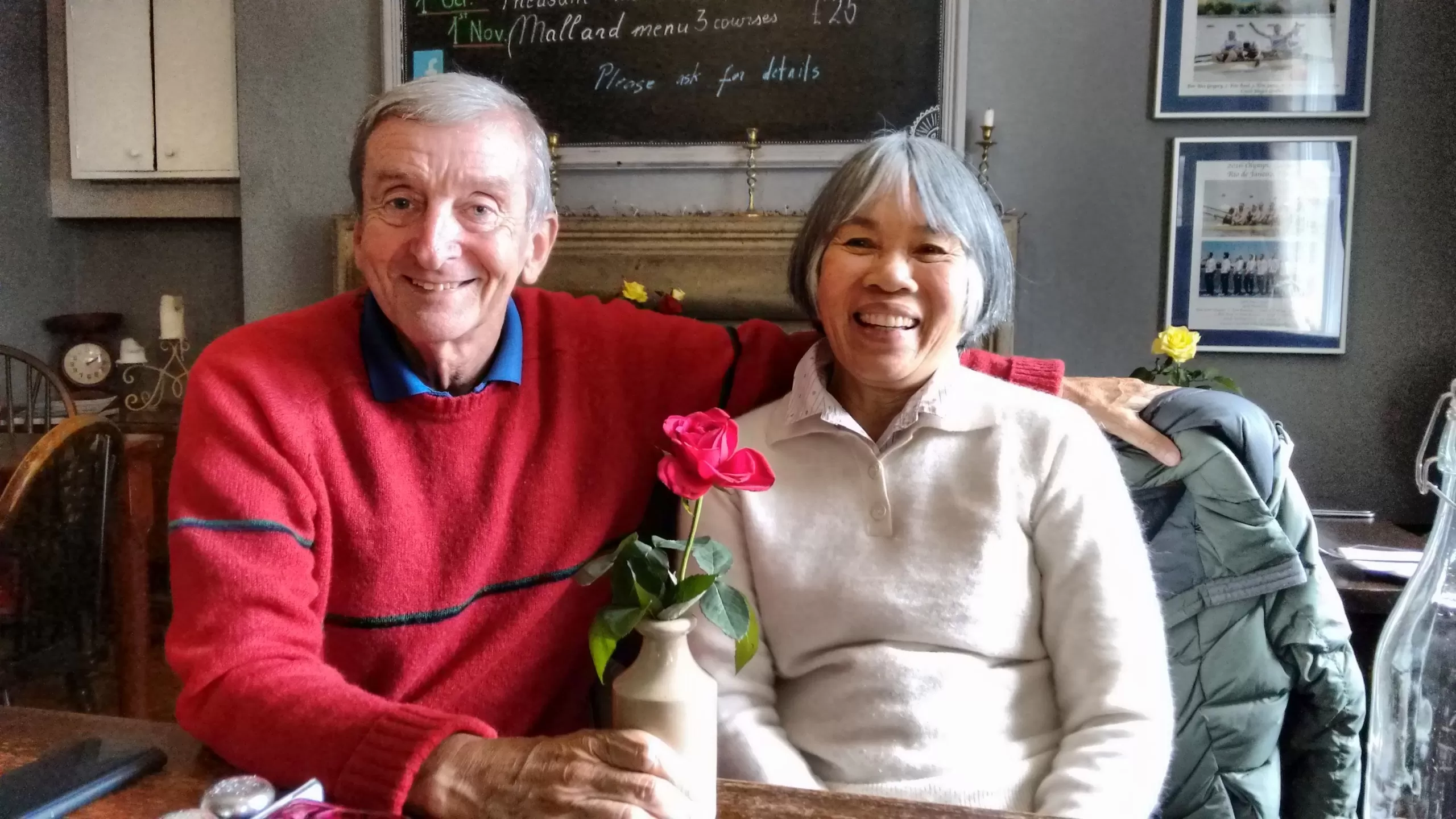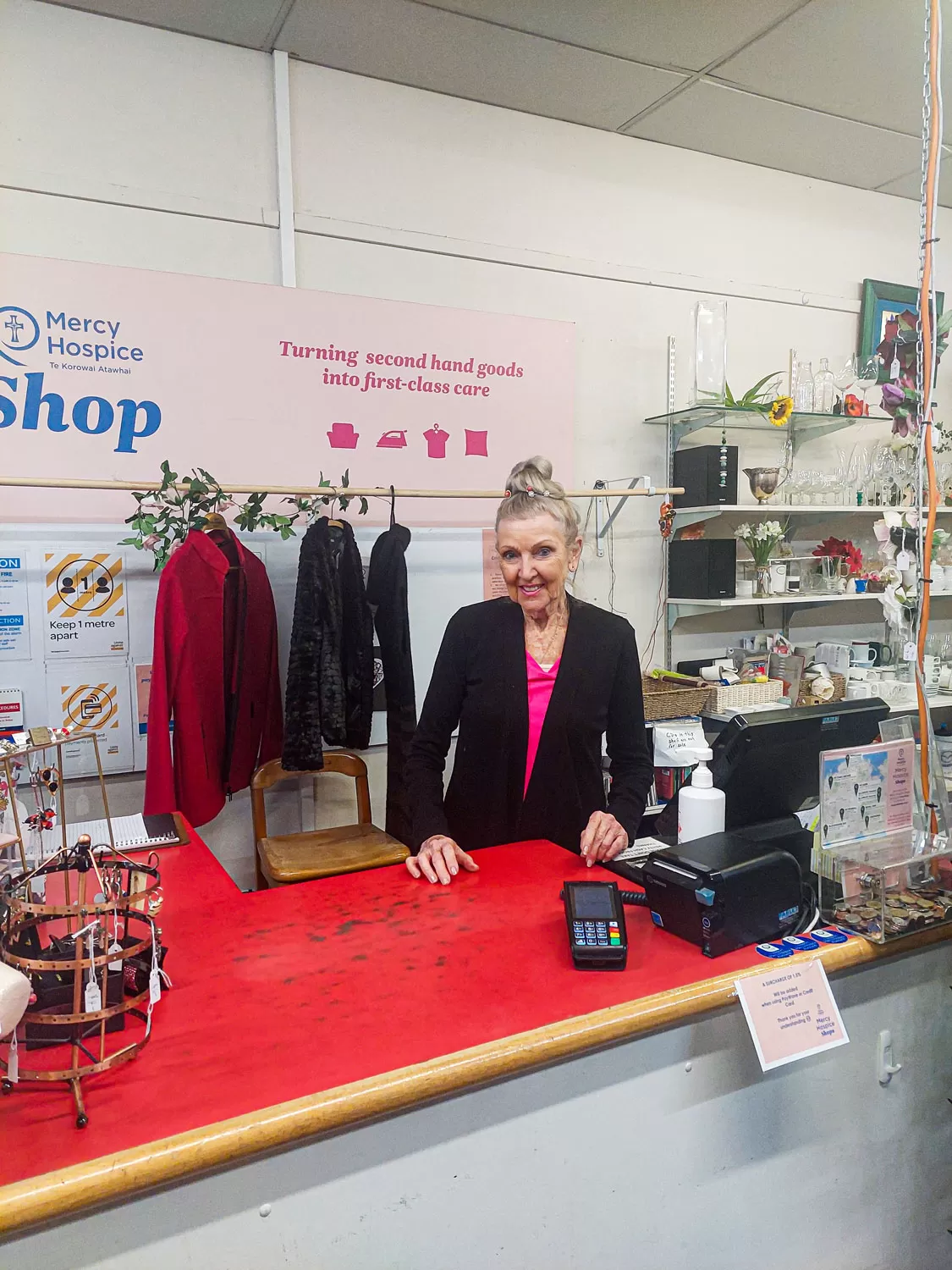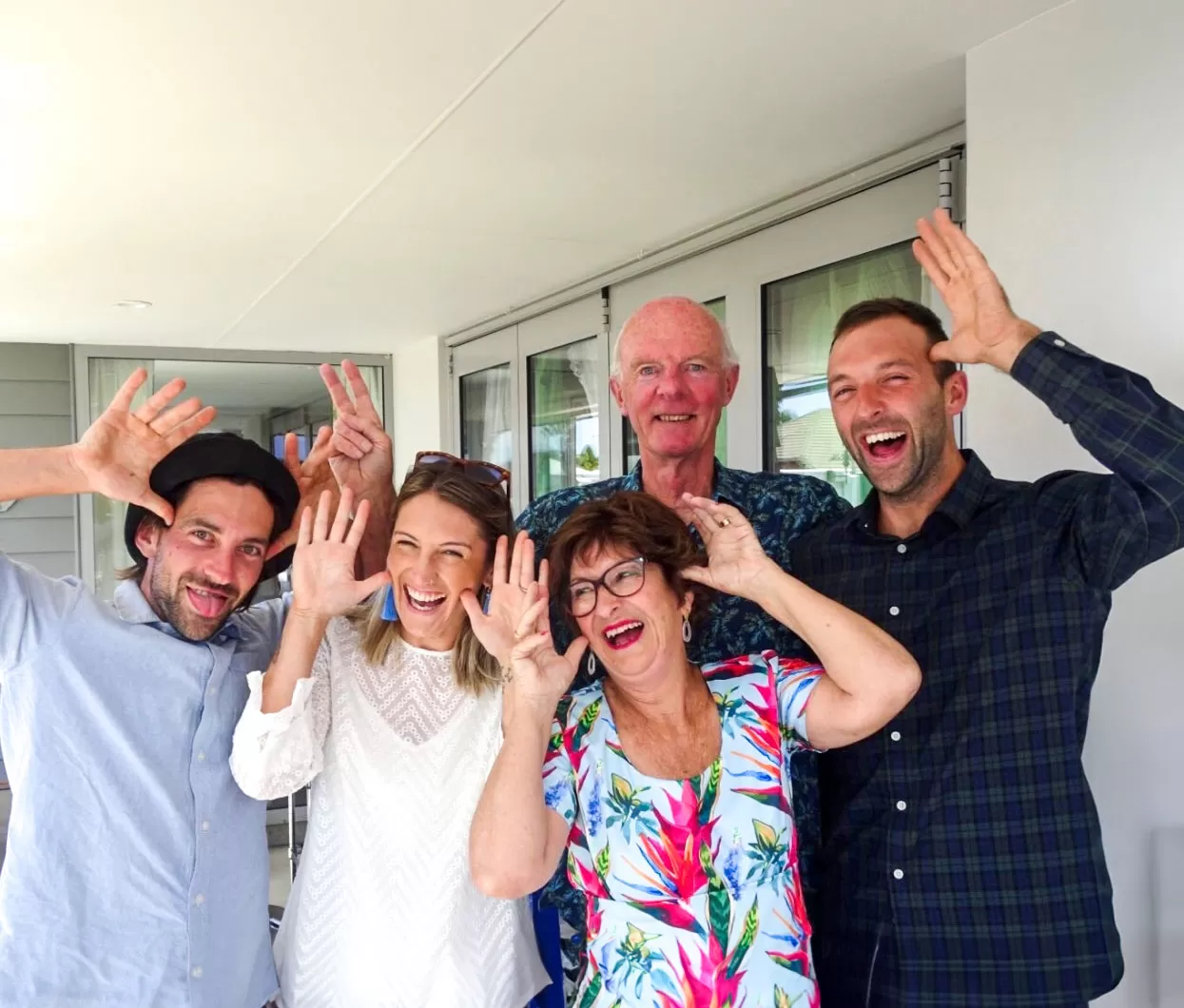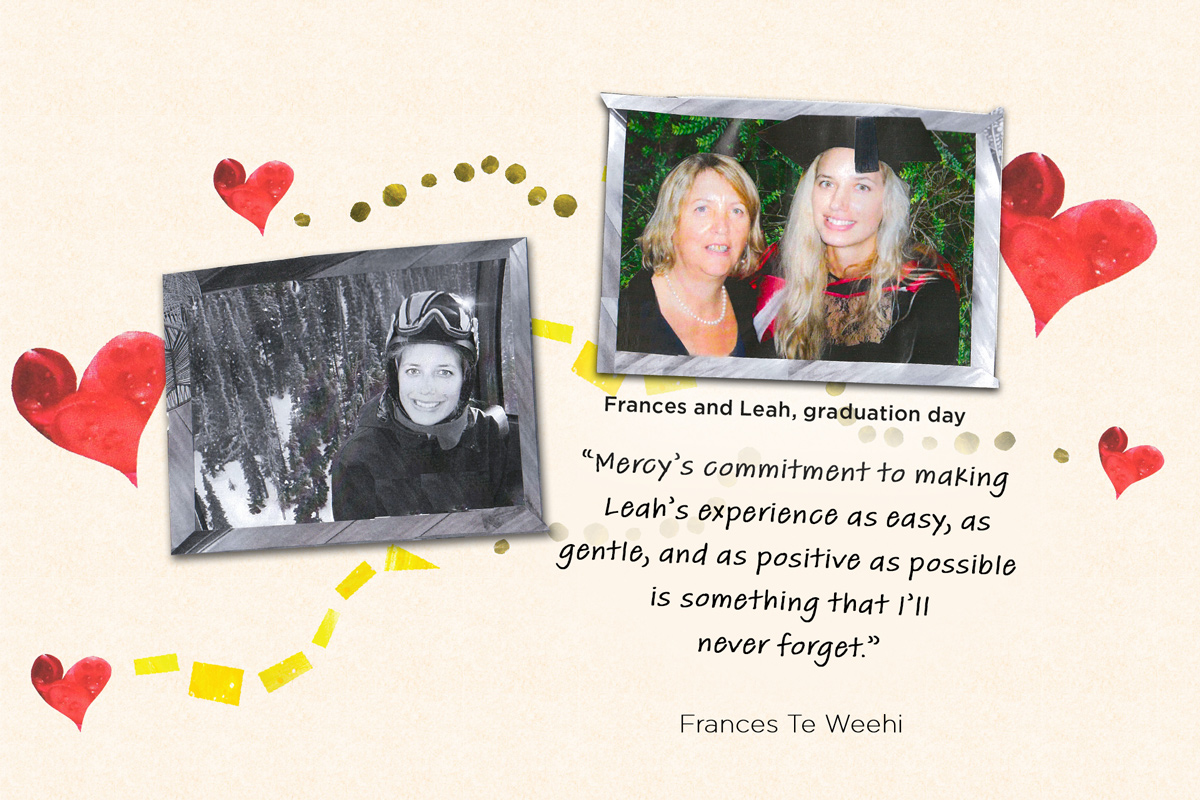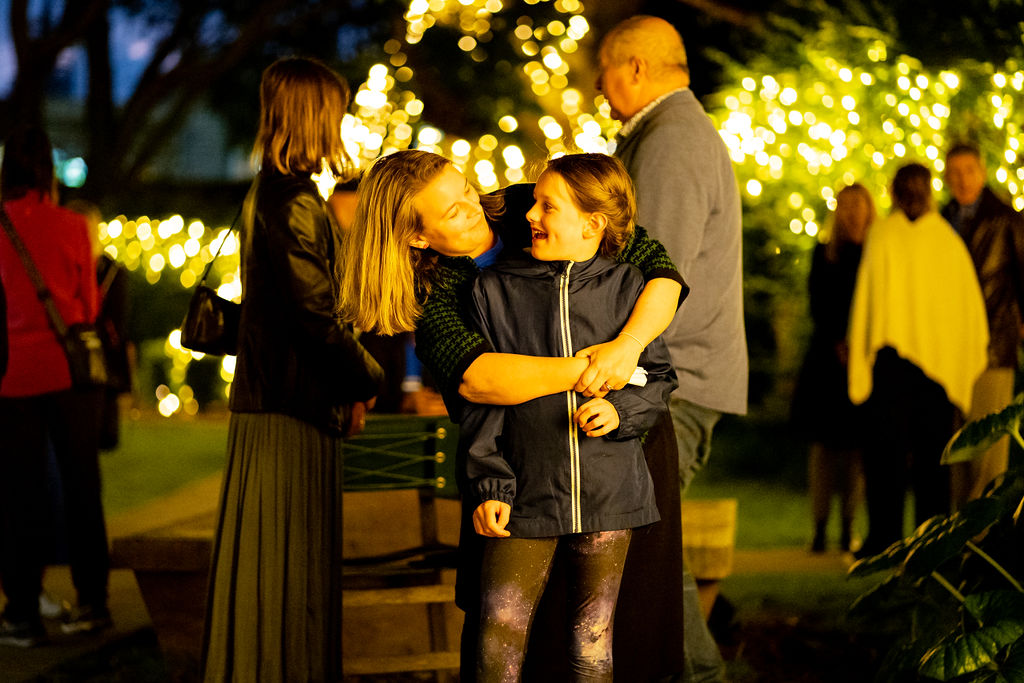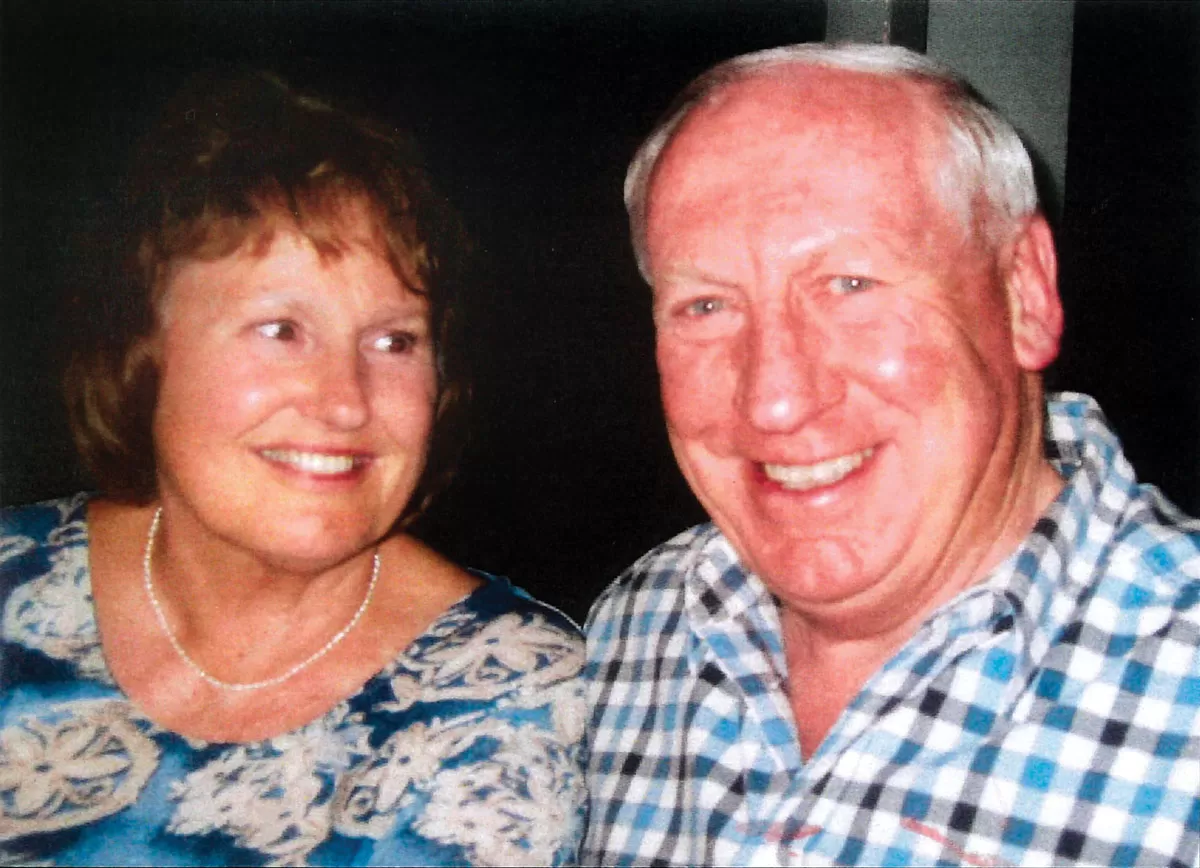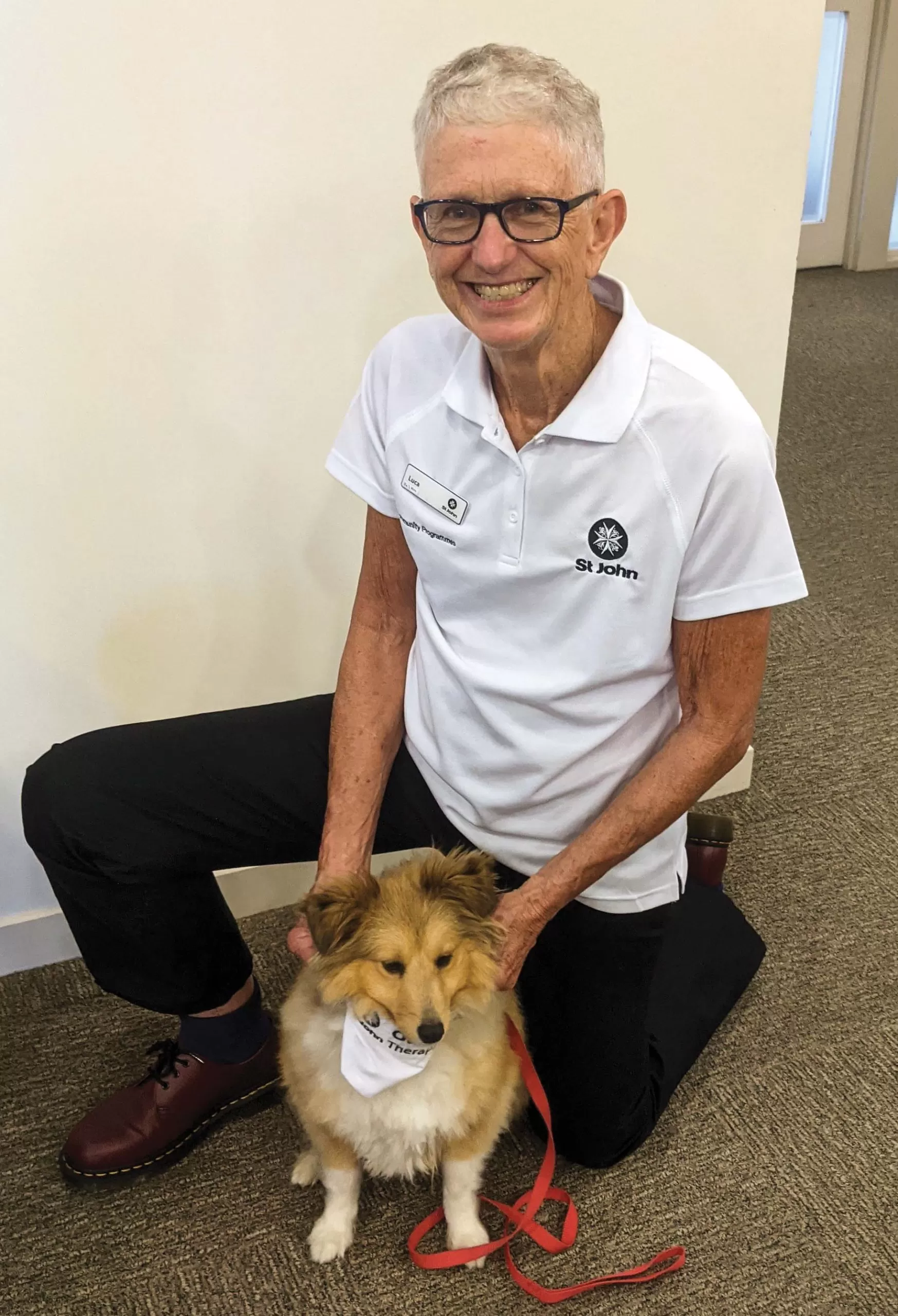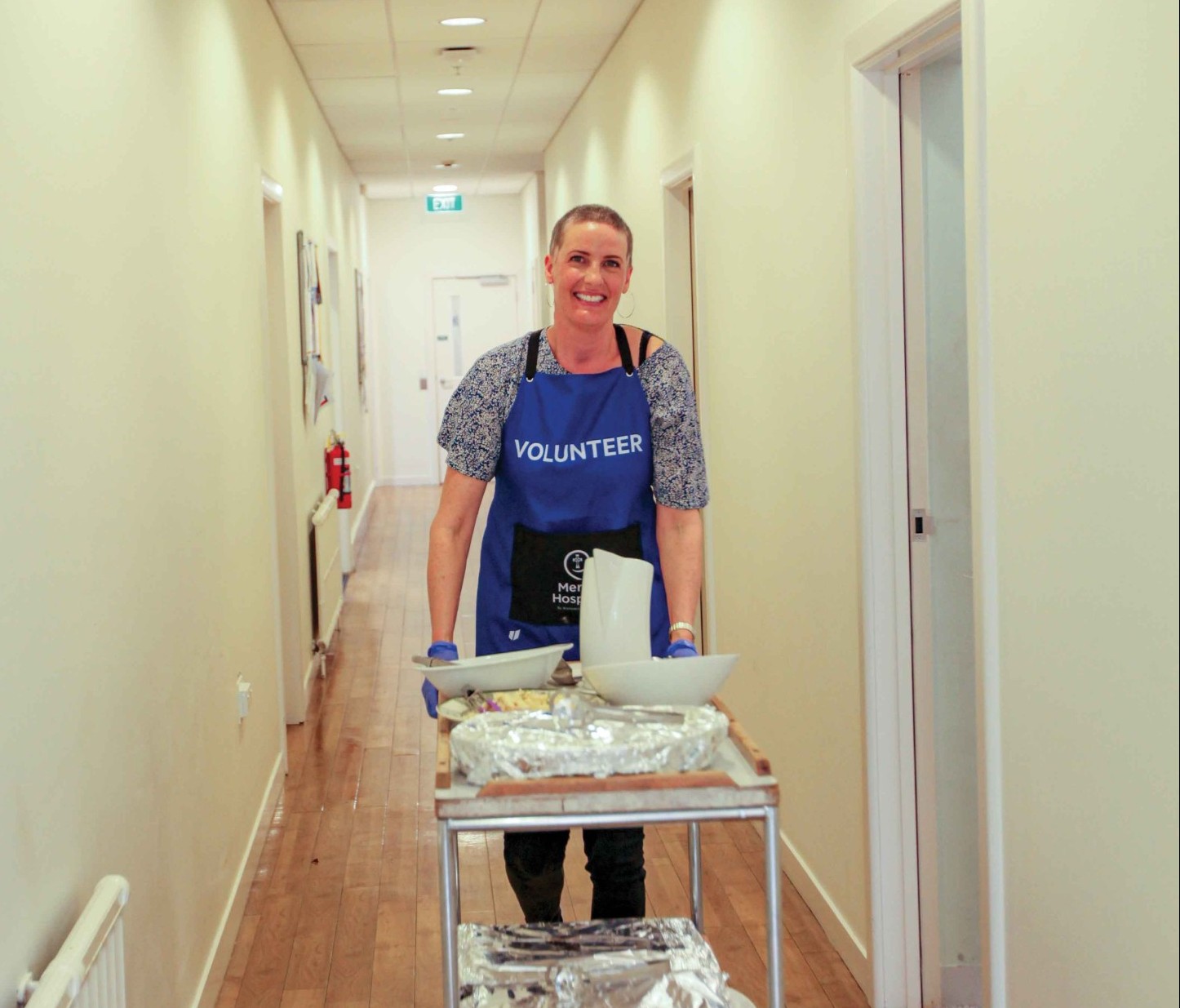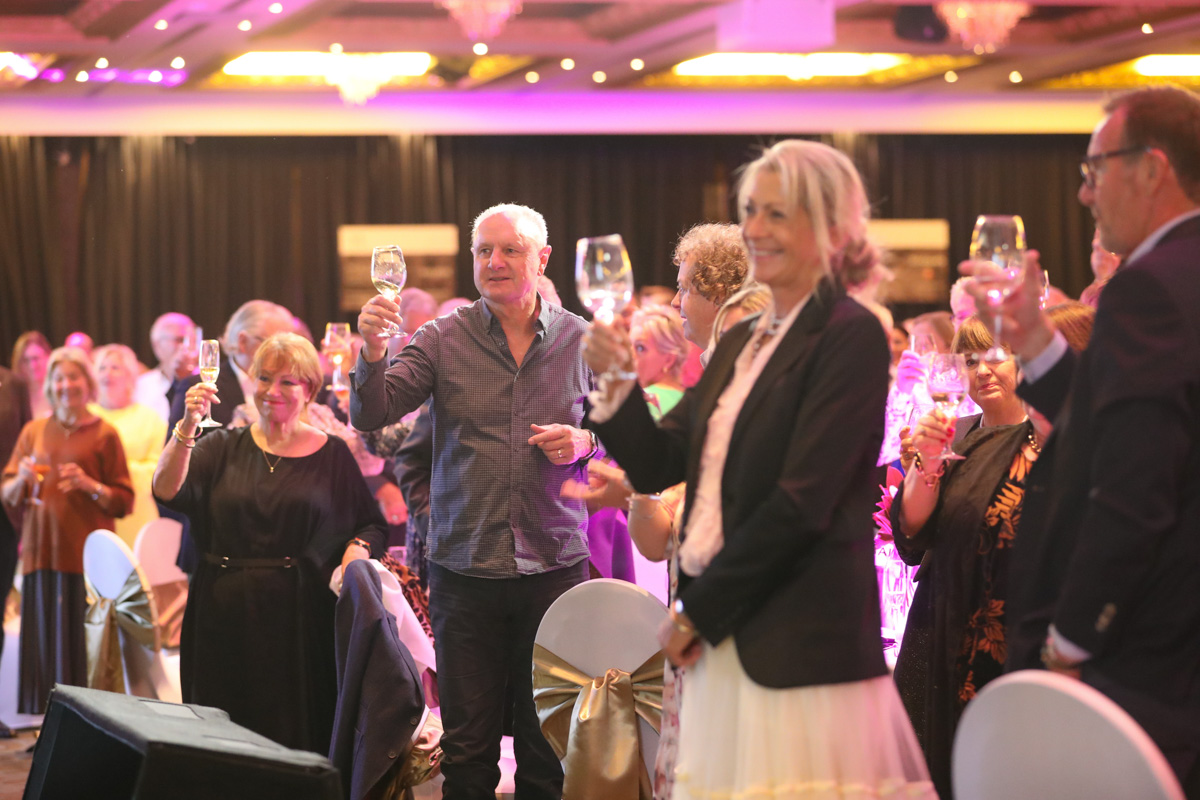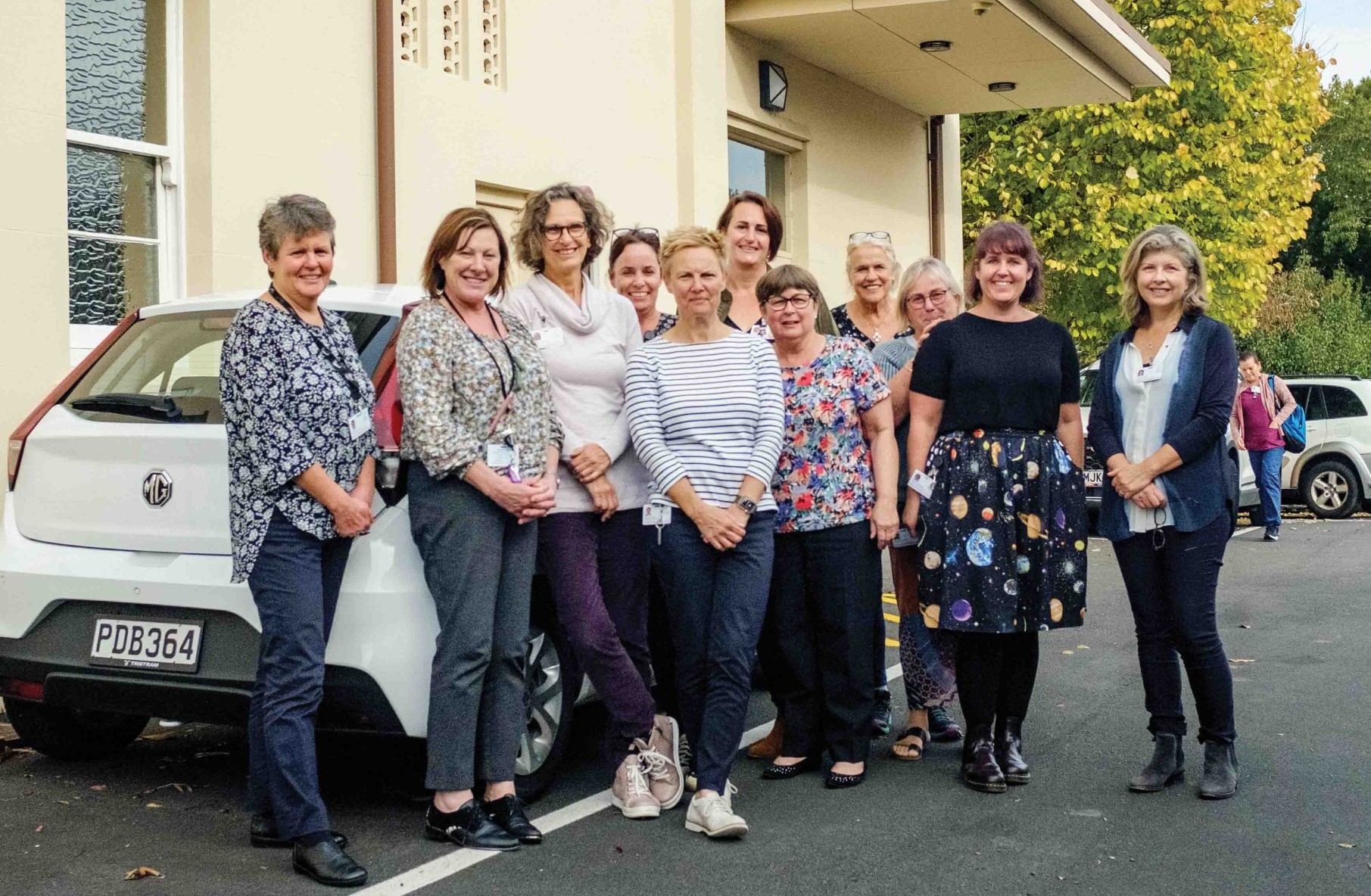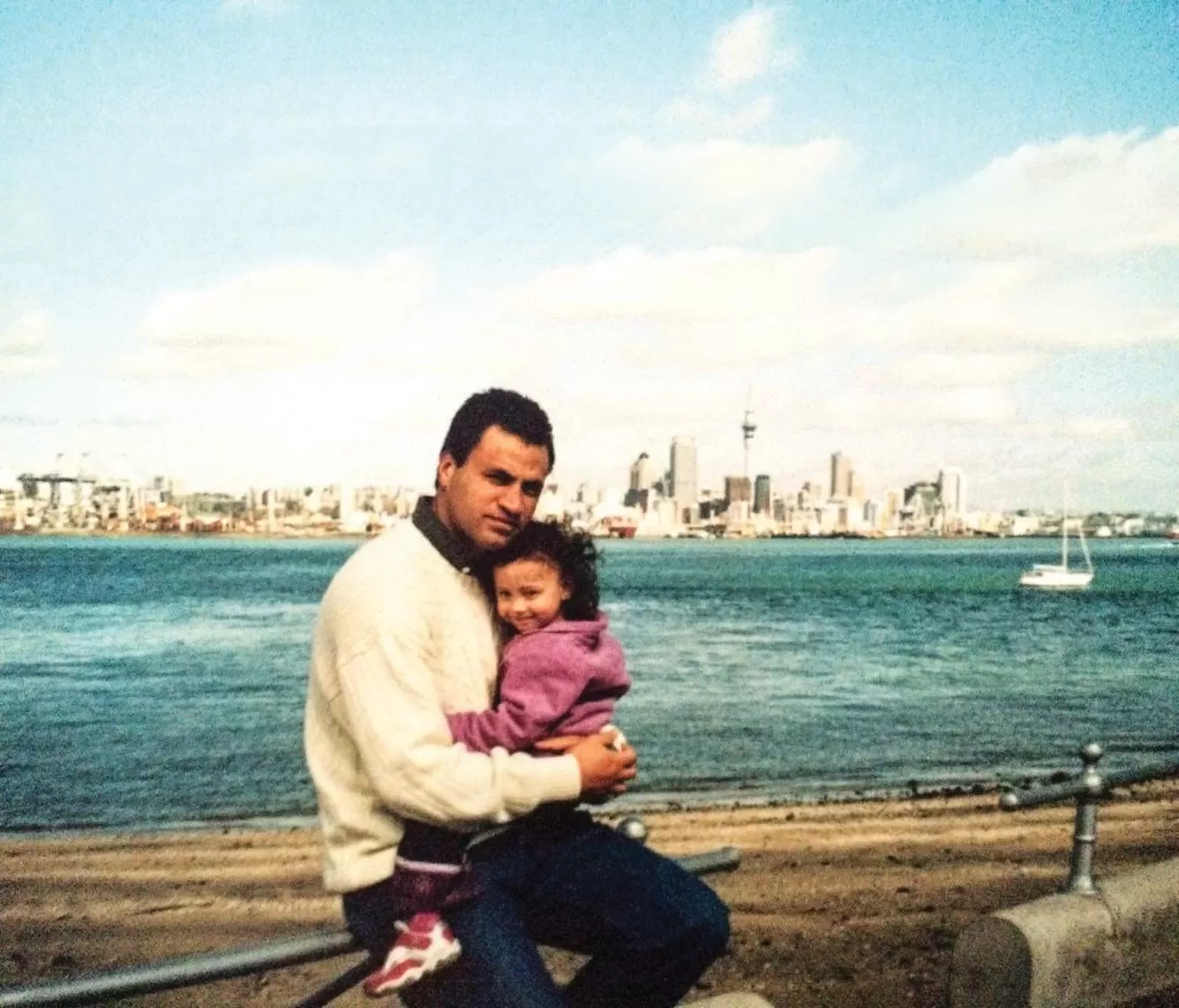
It is such a privilege to be able to share this account of gratitude and love from Antonia Guttenbeil, whose father Jason passed away at Mercy Hospice in 2018. Thank you also to Dain Guttenbeil, Antonia’s uncle, who continues to provide invaluable cultural insights and learning to the whole team at Mercy Hospice.
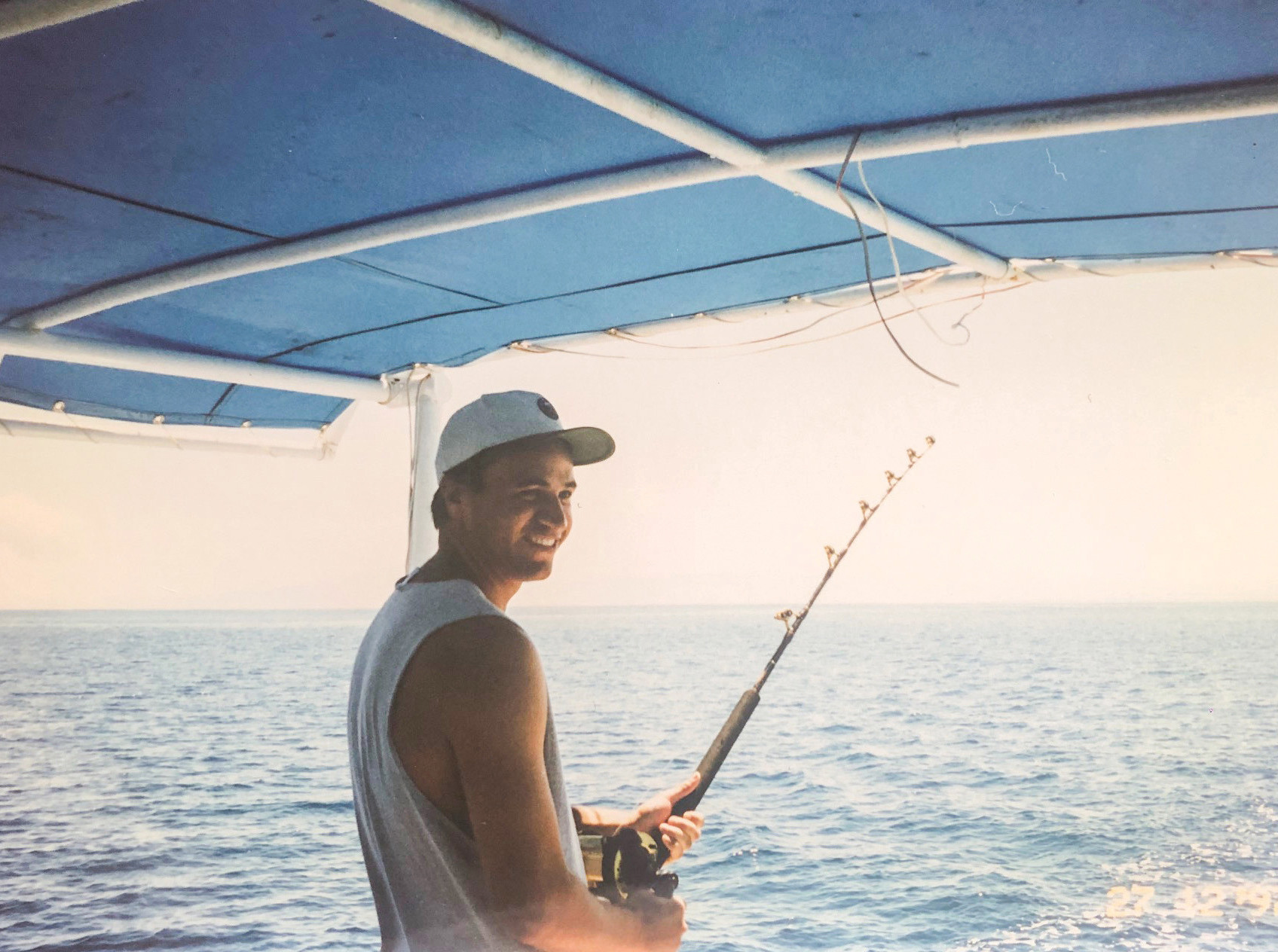
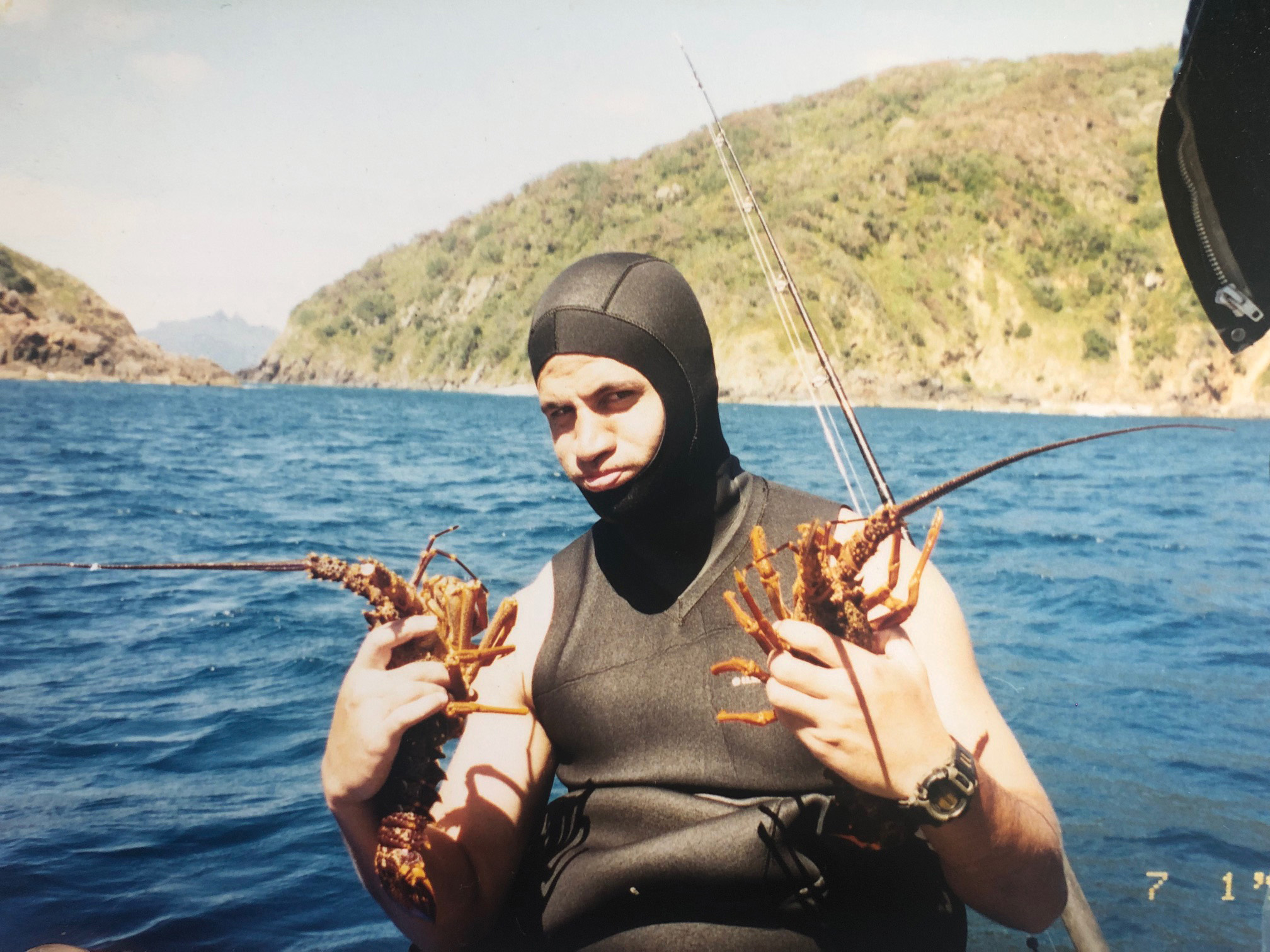
I had the best dad. Fishing, diving, and golfing were his favourite activities. He was the go-to parent coach for my brother’s soccer teams, and he was my biggest supporter at the netball courts. He cooked the best food and loved his ESPN documentaries. Our summers were spent camping at Whananaki with all our whānau where Dad would catch crays for breakfast and take us rock climbing to the mermaid pool.
In April 2017 my dad, Jason was diagnosed with terminal lung cancer. Our whole world changed. Our once active and healthy Dad was unable to move from the couch for months. The time that followed was a rollercoaster of good and bad days, weeks, and months.
In February 2018 I had my first day of university. The same evening, Mum and Dad told me that Mercy Hospice would be the next step. To be honest, I barely knew what hospice was. I thought it was a place for old people. Why would my dad be going to hospice? It was very confronting learning that hospice would likely mean the end.
Three weeks later, things moved rapidly. One morning the ambulance arrived, and I rode with Dad to Mercy Hospice. It was my first time there. We settled into a room, and I remember feeling overwhelmed and confused. I had no idea if this meant he was going to die today or if we would be going home. I had no clue what was going to happen next.
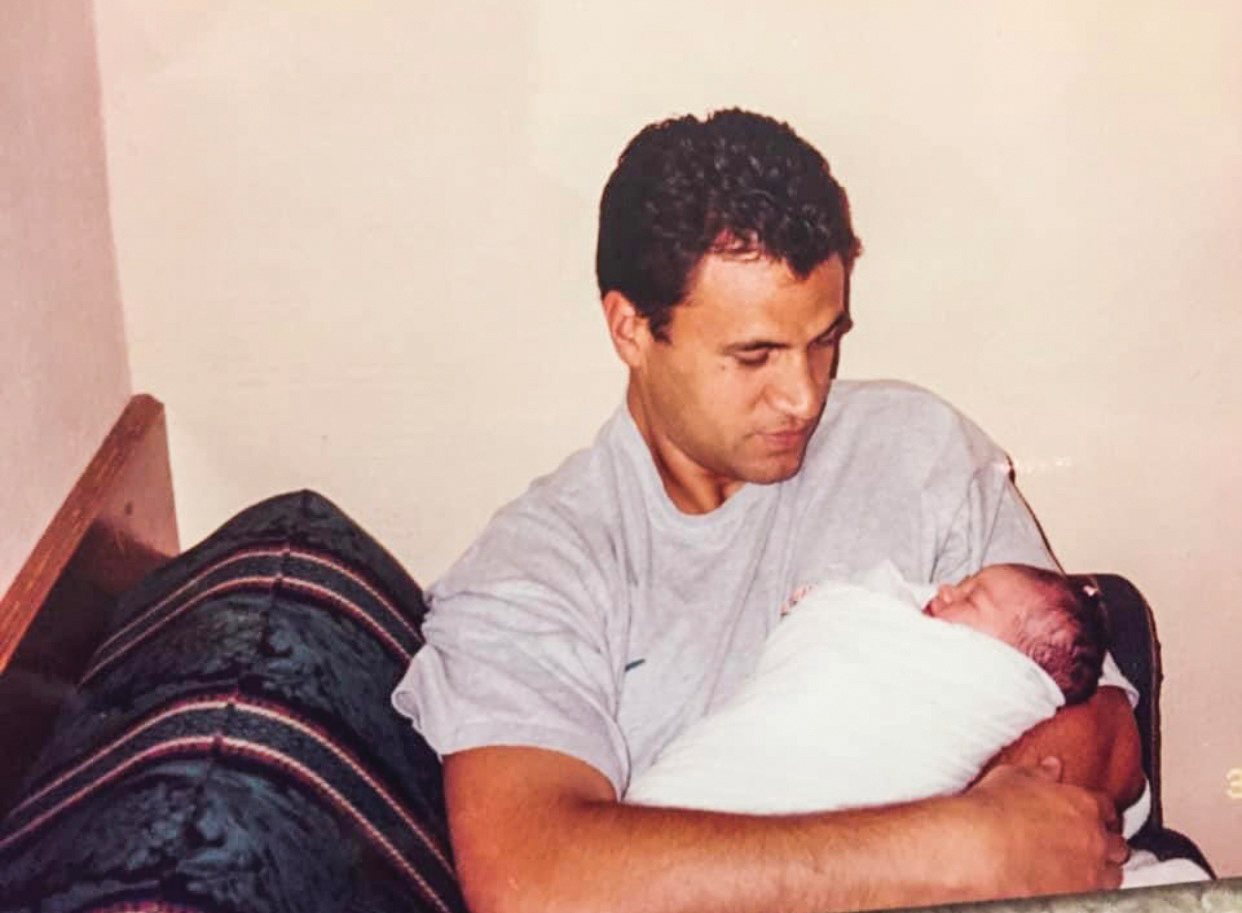
As a child, never having seen death before, I feared what was to come. A kind doctor spoke with Mum and I. I asked her what happens when someone’s dying. She explained what the nurses would do to care for him, how he was being impacted and how it will likely be when he takes his last breaths. She explained it with empathy and with truth. I needed someone to take the uncertainty away and she did as best that someone can in that situation. In a completely overwhelming couple of hours, she helped me in all the ways she could.
We were at Mercy Hospice for 6 days. My mum, brothers and I slept by my dad’s side every night. The staff offered to make the room as comfortable as possible for us. I was able to take a shower every morning and it was these little things that made it possible to stay comfortably by Dad’s side.
Downstairs my whānau were able to stay 24/7. We had mattresses set up marae style where whānau could stay each night. Knowing that my immediate family were with us was a comfort that I realise now was very necessary for me. It meant my uncles could come up to the room in the early hours of the morning so I could finally sleep peacefully knowing they were with him. It meant my aunty and uncle had space to provide kai. It meant support was never far. It meant that I felt safe and protected by my family.
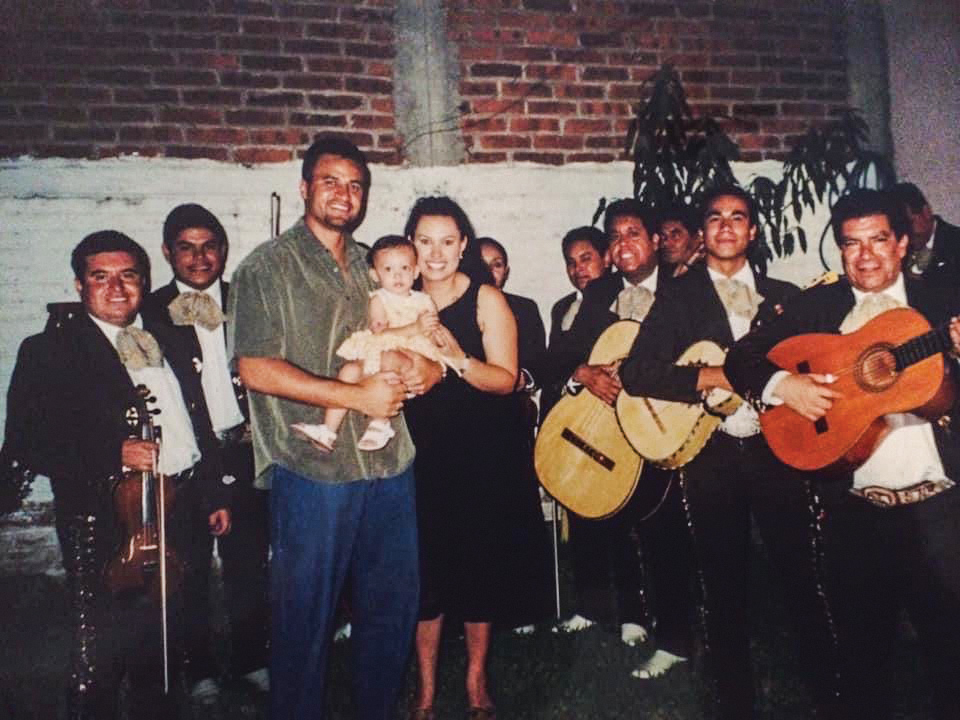
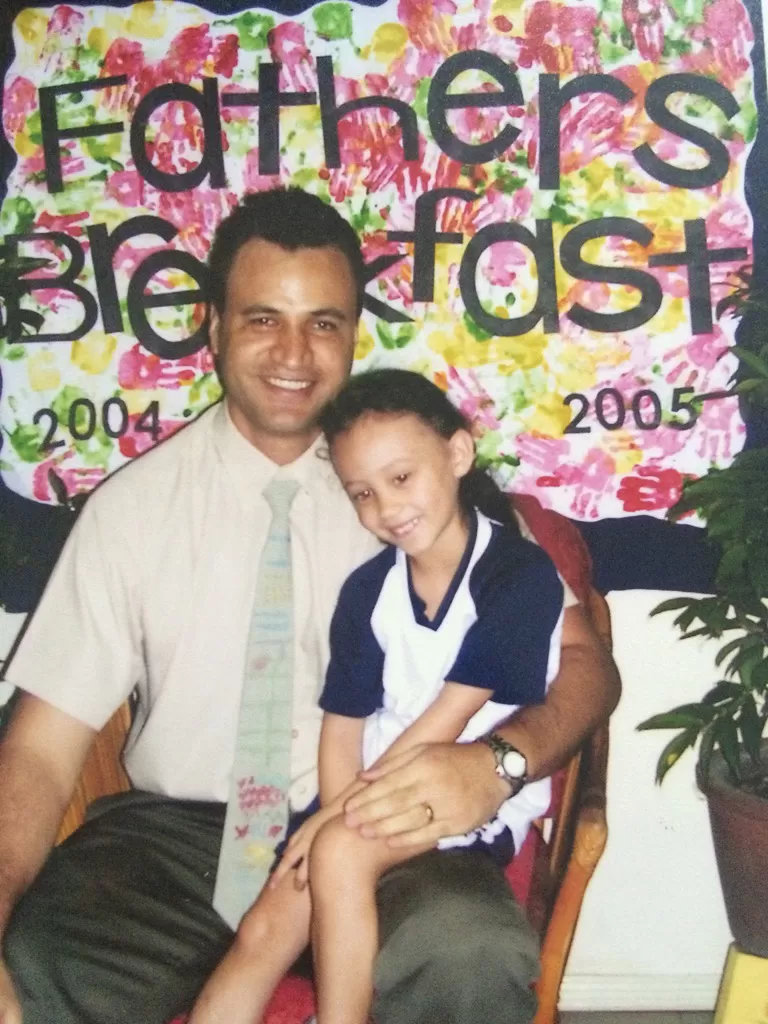
Finding your space and your voice as a child to a dying parent is hard.
Being at Mercy Hospice was hard. Finding your space and your voice as a child to a dying parent is hard. We have big families and there was a lot going on. It’s easy as children to feel like spectators. I was lucky to have my dad’s brothers and sisters to remind me that I had a right to spend time with my dad in this time. I needed my whānau around so I wouldn’t be lost in the overwhelming situation. For me that was the value of having our whānau space at Mercy Hospice.
“I was lucky to have my dad’s brothers and sisters to remind me that I had a right to spend time with my dad in this time. I needed my whānau around so I wouldn’t be lost in the overwhelming situation.”
On the morning of March 26th 2018, my dad, Jason passed away with my mum, brothers and I at his side. I was 18, and my brothers 15 (Alex), 11 (Jaden) and 5 (Lucas) years old. Losing a parent is a devastating experience. I needed to be held by my whānau and as kids we needed our whānau to be there for my mum. As the child, I did not know how to immediately console my mum who lost her husband and nor could she be focused on consoling all four of us children who had lost their dad. It was having my cousins, grandparents, aunts, and uncles there to hold us that I am grateful for.
Almost four years after my dad’s passing, hospice is still a part of our lives. We have since had a family counselling session, visited the porcelain tui in his name in the courtyard, walked in the 2019 fashion show, and shared our experience to the wider Mercy Hospice team.
“I see hospice now as not just the place my dad passed, but a place of love, kindness, empathy, and whānau”
Looking back at our time at hospice, I can’t explain the immense gratitude that I have for the quality of care and aroha given to our whānau. I see hospice now as not just the place my dad passed, but a place of love, kindness, empathy, and whānau. That week was the hardest time of our lives and Mercy Hospice was there for us.
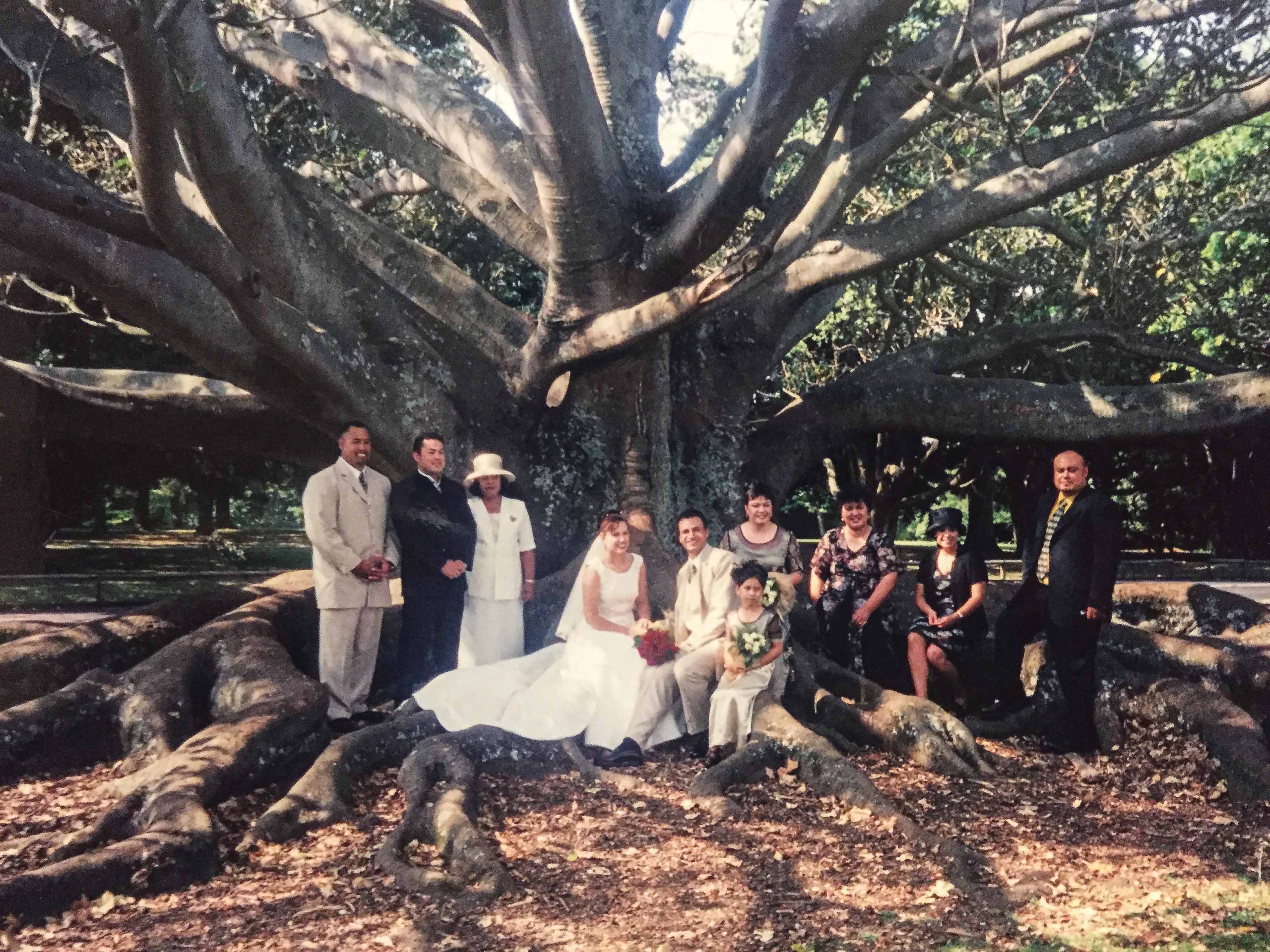
Notes to Antonia’s story by Dain Guttenbeil (Antonia’s Uncle).
Antonia was able to share her experience as a child of a patient, and from both a Te Ao Māori and Te Ao Pasifika value base.
With the board and executive of Mercy Hospice, we were able to share insights around the positives and areas where more help could be offered. A part of this help is to better educate communities about hospice, that it is a place of so much love of Aroha and Awhi, that it is not just pain management and a dignified end.
We were fortunate to have a Pasifika, Māori family who wrapped everyone in a Korowai of support and love in the hardest times. Yet navigating cultural differences as a Samoan, Tongan, Māori and European whānau were often very tiring and daunting for Trish, Jason’s wife, in a time that was so traumatic and tiring. We highlighted that support for the closest immediate family members to manage cultural needs along with their own immediate family needs to be with their loved one in these last days was likely not well understood. We suggested that having strong competence available to support the immediate family and navigate a diversity of cultural values we felt was an opportunity to support others like ourselves.
We also felt that increasing this competence within Mercy Hospice would only work to improve how the values of our Māori and Pasifika cultures that are so full of love and support, that are treasures belonging to all New Zealanders, are integrated in the Korowai that Mercy Hospice wraps around people and their families. We are fortunate in New Zealand to be able to integrate the cultural values of many parts of the world to Awhi one another. To guide and care in a way that is uniquely Aotearoa New Zealand. A way of being that we continue to champion and celebrate as Te Korowai Atawhai Mercy Hospice.
Share this Mercy Story

Do you have a Mercy story you would like to share with readers of Mercy Matters?
Send your story and images to [email protected].
Continue the Care. Click here to make a safe online donation to Mercy Hospice
Related posts
If you enjoyed reading this, then please explore our other articles below:
